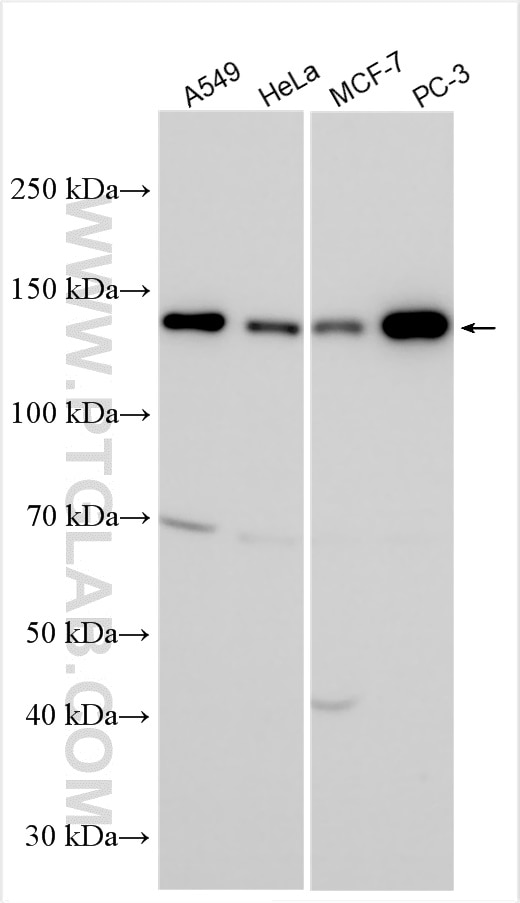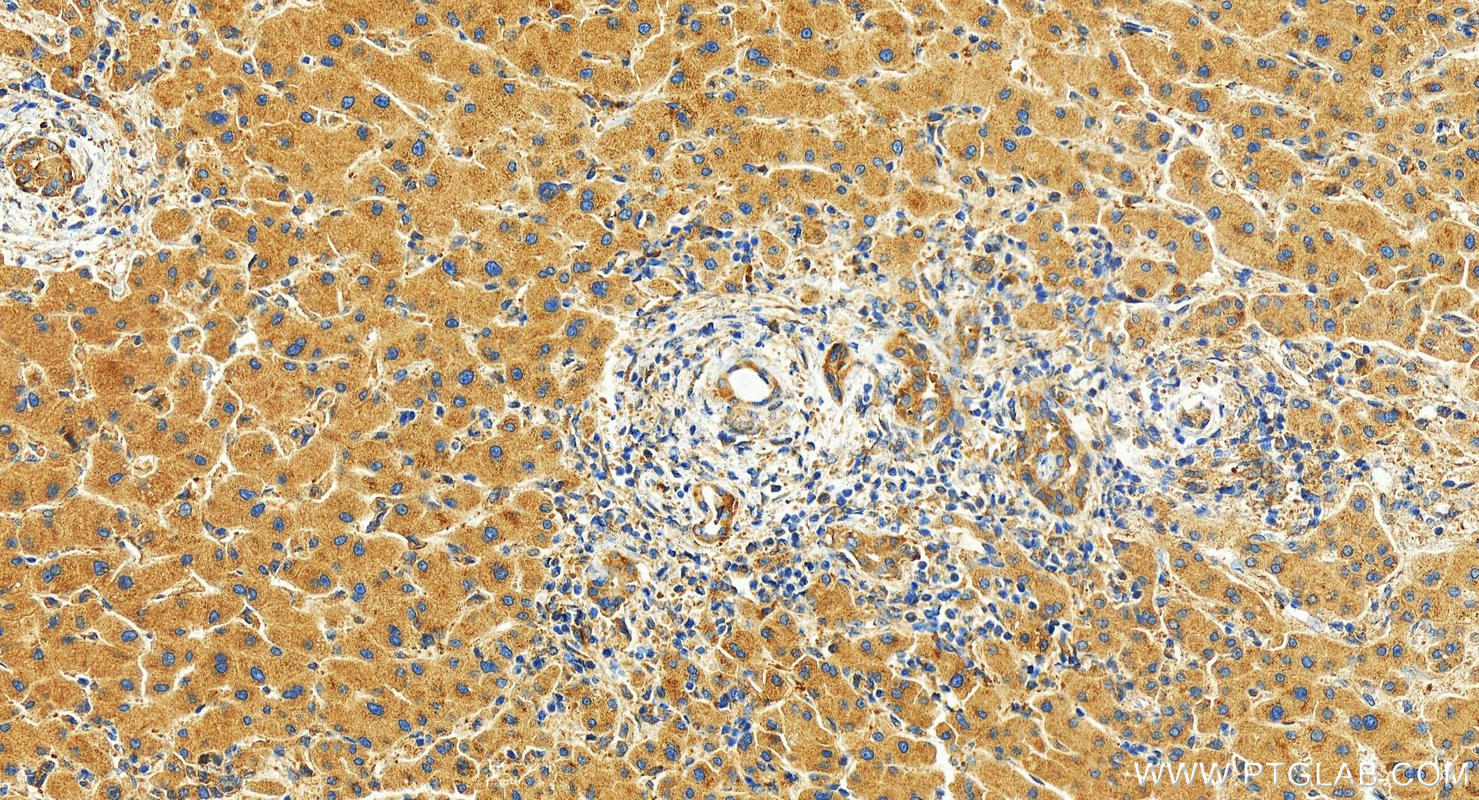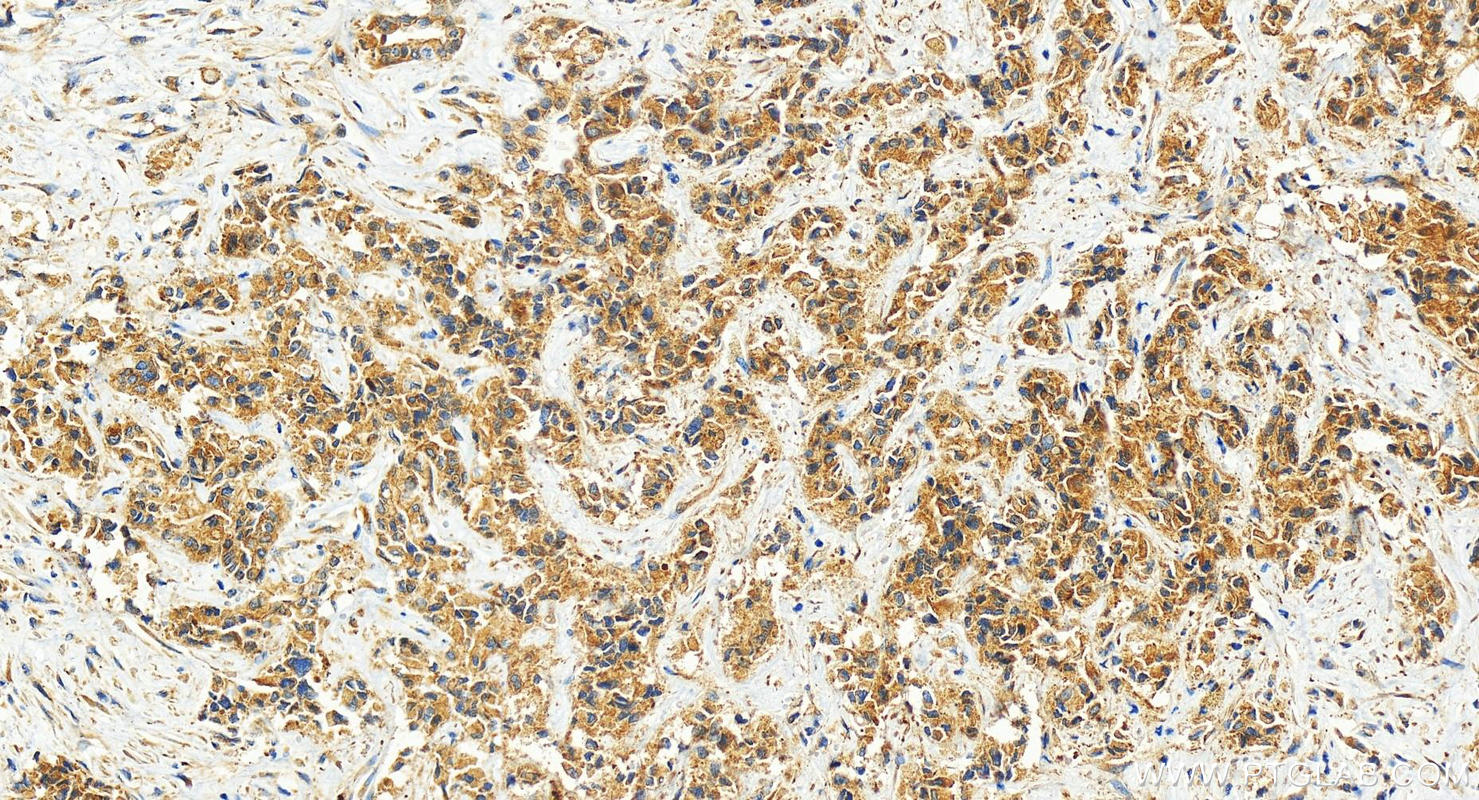Anticorps Polyclonal de lapin anti-USP40
USP40 Polyclonal Antibody for WB, IHC, ELISA
Hôte / Isotype
Lapin / IgG
Réactivité testée
Humain
Applications
WB, IHC, ELISA
Conjugaison
Non conjugué
N° de cat : 27217-1-AP
Synonymes
Galerie de données de validation
Applications testées
| Résultats positifs en WB | cellules A549, cellules HeLa, cellules MCF-7, cellules PC-3 |
| Résultats positifs en IHC | human intrahepatic cholangiocarcinoma tissue, il est suggéré de démasquer l'antigène avec un tampon de TE buffer pH 9.0; (*) À défaut, 'le démasquage de l'antigène peut être 'effectué avec un tampon citrate pH 6,0. |
Dilution recommandée
| Application | Dilution |
|---|---|
| Western Blot (WB) | WB : 1:2000-1:10000 |
| Immunohistochimie (IHC) | IHC : 1:250-1:1000 |
| It is recommended that this reagent should be titrated in each testing system to obtain optimal results. | |
| Sample-dependent, check data in validation data gallery | |
Informations sur le produit
27217-1-AP cible USP40 dans les applications de WB, IHC, ELISA et montre une réactivité avec des échantillons Humain
| Réactivité | Humain |
| Hôte / Isotype | Lapin / IgG |
| Clonalité | Polyclonal |
| Type | Anticorps |
| Immunogène | USP40 Protéine recombinante Ag25976 |
| Nom complet | ubiquitin specific peptidase 40 |
| Poids moléculaire observé | 140 kDa |
| Numéro d’acquisition GenBank | BC013305 |
| Symbole du gène | USP40 |
| Identification du gène (NCBI) | 55230 |
| Conjugaison | Non conjugué |
| Forme | Liquide |
| Méthode de purification | Purification par affinité contre l'antigène |
| Tampon de stockage | PBS with 0.02% sodium azide and 50% glycerol |
| Conditions de stockage | Stocker à -20°C. Stable pendant un an après l'expédition. L'aliquotage n'est pas nécessaire pour le stockage à -20oC Les 20ul contiennent 0,1% de BSA. |
Informations générales
USP40 (ubiquitin specific peptidase 40), also known as ubiquitin thioesterase 40, deubiquitinating enzyme 40 or ubiquitin carboxyl-terminal hydrolase 40, is a 1235 amino acid protein that belongs to a large family of cysteine proteases that function as deubiquitinating enzymes. USP40 transcript is ubiquitously expressed but abundant in the kidney, heart, spleen, liver, and testis. Within the kidney, USP40 is expressed in glomerular endothelial cells during development (PMID:28148530).
Protocole
| Product Specific Protocols | |
|---|---|
| WB protocol for USP40 antibody 27217-1-AP | Download protocol |
| IHC protocol for USP40 antibody 27217-1-AP | Download protocol |
| Standard Protocols | |
|---|---|
| Click here to view our Standard Protocols |




